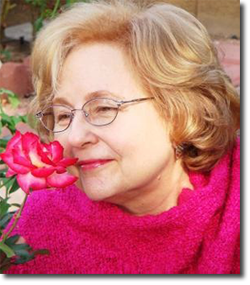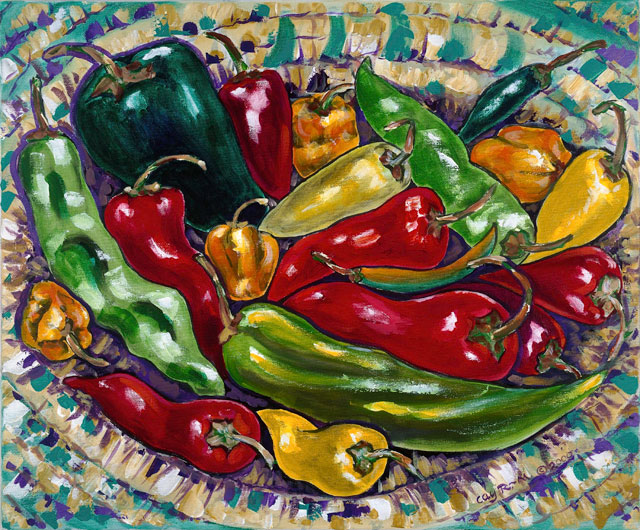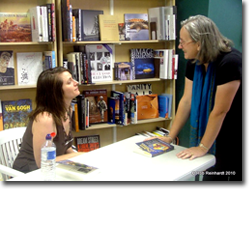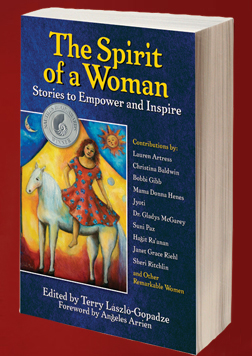Peppers and Me
Monday, August 23rd, 2010by Cay Randall-May
 “Within loss, God always weaves a lesson and whispers the promise of healing.”-Eleanor Roosevelt
“Within loss, God always weaves a lesson and whispers the promise of healing.”-Eleanor Roosevelt
Some people eat chili peppers; I paint them.
The idea came to me one December day, sixteen months after my twenty-seven year old son, Paul, took his own life. I was numb with shock after his passing and, although I continued to work at my ordinary tasks, my thoughts obsessed on my loss. My days were a nightmare as I relived the horror of the police call that told me he had died. The few fitful hours of sleep that I got each night were my only time to forget, but they were much too brief.
For the first year after his death, I lost my usual enthusiasm for painting and drawing. All I could visualize were the balloons that we released at Paul’s memorial as they carried my dreams for his life into the sky. In my imagination, the tiny specks would eventually explode, snagged by jagged clouds.
That’s why the first peppers I painted that December day were so hopeful. Through them I had found a potent symbol for my continuing grief process.” There were just two of them in that first painting. I composed them in jarring contrast to a turquoise background — the color of the Arizona afternoon sky. The menacing clouds that had overshadowed me for months had finally cleared.
In that painting, the top pepper is green and torn open all along its length to expose its seeds. It symbolizes my heart, filled with hope but forever damaged. Below is an intact red chili of equal size, representing the internal combustion engine of creativity. I didn’t consciously begin this painting by choosing this symbology; it just flowed, felt right. So I followed my feelings.
More pepper paintings came in quick succession. I didn’t want to stop painting them. Sometimes I would start the next painting before completing the one before. To date, I have painted nineteen in this series, which I call “A Passion for Peppers,” and they continue to fill my imagination.
They document my healing as I move through profound grief, the pain of my son’s death catalyzing my process. I now realize that my emotions were partially numbed after my parents’ divorce, my own failed first marriage, and many other losses. What passed for happiness for most of my adult life had always a flat, gray feeling to it. I had been depressed for a long time without knowing it.
My son’s tragic decision made me examine my own will to live. My grief hurt; it burned within me, just like my stomach burns when I eat hot peppers. There was no relief from this constant emotional and physical pain except prayer, which I believe led me to more help.
One day in a bookstore, I came across a copy of “The Grief Recovery Handbook” by John James and Russell Friedman. The authors suggested working through feelings of loss with a partner, which I did. Soon after, I was given another answer to prayer. Someone told me about a Survivors of Suicide support group. Here I could talk with others every week. They truly understood my pain because they, too, had felt it. I learned that others who had lost loved ones to suicide struggled with the will to go on living.
The more I talked out my feelings, the more I wanted to paint peppers: yellow, red, orange, green of all possible sizes and shapes. I turned on cheerful, Latin music and danced as I painted. Each picture became more rhythmic, more alive. Eventually I included people in my paintings. First a woman with a pepper for her mouth suggested how I felt when I talked out my sorrow. It hurt, but it was essential. Next I painted a young, strong man with a pepper tattoo on his arm that proclaimed, “I love peppers.” He symbolized my own willingness to openly discuss my process with others. At the same time, I began to write articles on suicide awareness and became a volunteer public speaker.
Anyone who regularly eats peppers builds up a tolerance for capsicum, the chemical that gives them heat. People who work through their sorrows, who really taste their feelings, also become stronger. A friend emailed me this anonymous wisdom: “A strong woman has faith that she is strong enough for the journey, but a woman of strength has faith that it is in the journey that she will become strong.”
I realize that my journey through grief will be life-long, but it will make life more real. We do not need to feel to live, but if we feel, we can’t avoid living.
When someone first told me that every loss leaves us with a gift, I thought they were out of touch with the reality of my situation. How could my son’s death hold any gifts for me other than aching loneliness, guilt, and remorse? The “shoulds,” the “maybes,” and the “whys” tore at my soul. I was certain I could never receive any other gift. That was before the peppers.
Now I know otherwise. Paul’s death presented me with a choice. I can truly feel, or I can go totally numb. Every day, I renew my choice to awaken my heart through positive prayer. I don’t pray for my situation to be changed. It never will be. I will always miss my son and occasionally think that I see his face, recognize his stride in the silhouette of a stranger, or hear his voice saying, “Hi, Mom.”
Instead, I pray to feel life and to give others the courage to feel life. Without a doubt, my pepper pictures will be just kitchen decoration to some who see them, but to those who understand my journey, they will speak of renewed faith, hope, and joy.
Cay Randall-May
–read Cay’s bio here






